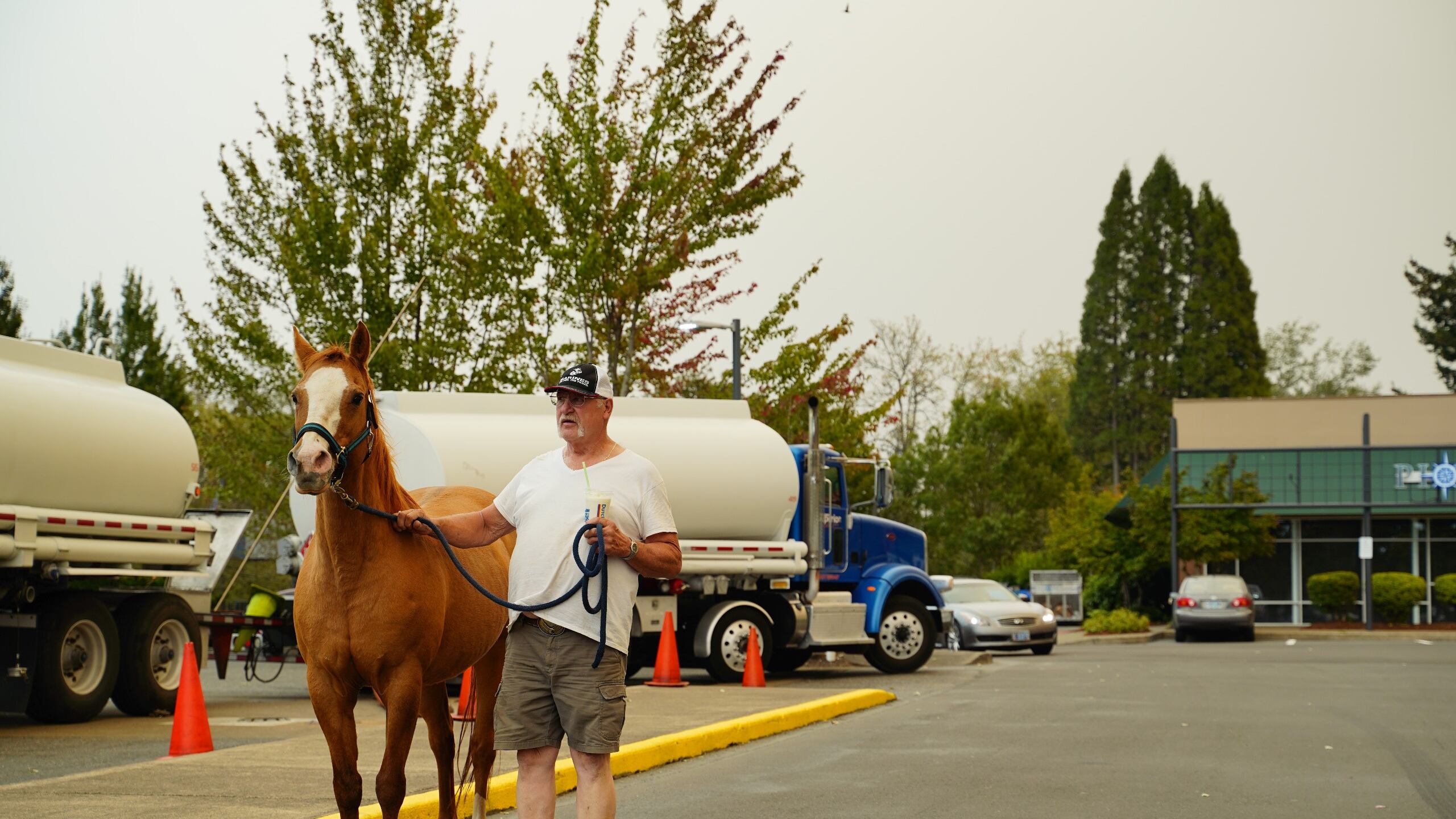WW presents "Distant Voices," a daily video interview for the era of social distancing. Our reporters are asking Portlanders what they're doing during quarantine.
Last week, thousands of Oregonians were displaced by wildfires. Hundreds of their pets and livestock were, too.
To house the farm animals, expo centers and fairgrounds in Portland, Salem, Corvallis and Albany have been converted into temporary boarding facilities for farm animals whose owners have had to flee from the fires.
Kate Schoenhals is one of the Oregon State University veterinarians leading the visits to livestock evacuation sites.
When wildfires were raging across the state last week at zero percent containment, Schoenhals and her colleagues were making as many as two trips to the Linn County Expo Center and one to the Benton County Fairgrounds each day. At the larger Linn County site, they check in on upward of 700 animals, including horses, llamas, cows, rabbits and even a couple of emus.
Schoenhals, who specializes in equine care, has spent most of her time in the field reassuring owners that their animals are safe and offering advice on how to make each animal's temporary living situation more comfortable. But she estimates that since evacuations began, she alone has had to treat 75 to 100 animals that required veterinary intervention.
"Mostly, honestly, it was things like lacerations experienced from the trauma and stress of transport," she says. "There was a horse that had a pretty good wound after having to ford a river to evacuate."
Though the influx of animals in need of shelter has decreased as evacuation orders wane around the state, Linn County Expo Center's livestock facilities are still full.
"Fortunately, it wasn't like the burns and scary things that you might expect with a fire. It was just associated with the chaos of having to mass evacuate," says Schoenhals. "I really think that getting the animals out sooner rather than later is key to survival."
WW talked to Schoenhals about the scene on the ground and what it's like to treat a horse that's suffering from smoke inhalation.
See more Distant Voices interviews here.

